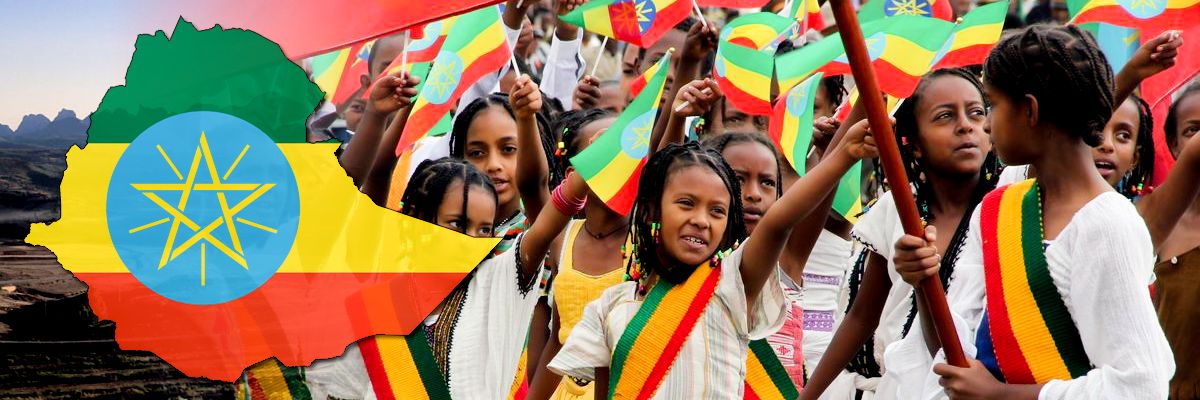Though it’s solidly 2024 nearly everywhere you go, one country with a centuries-old calendar of its own says it’s still perfectly fine there in the year 2017, thanks very much.
Less than two weeks ago, on September 11, Ethiopia celebrated the start of a new year. However, in this East African nation, they technically moved from 2016 to 2017, as the country follows a unique calendar that lags behind much of the world by seven years and eight months.
The difference arises from the Ethiopian Orthodox Church’s adherence to an ancient system, while most of the world transitioned to the Gregorian calendar in 1582. For Ethiopians, their calendar is a source of national pride, as it reflects deep-rooted cultural traditions that go back centuries.

According to CNN Travel, the Ethiopian calendar, thought to be over 1,500 years old, bears similarities to the Coptic calendar of Egypt. It consists of 13 months, with 12 months of 30 days and a shorter 13th month that lasts five days (or six during leap years).
The divergence from the Western calendar stems from differing calculations regarding the birth year of Jesus Christ. While the Roman Church altered its calculations around 500 CE, Ethiopia held onto the original dates.
Despite this, the global shift to the Gregorian calendar has forced many Ethiopians to effectively live their lives in two time systems. International businesses and schools in Ethiopia typically operate on the Western calendar, meaning locals must switch between the two regularly.

“It’s very difficult,” says Ethiopian archaeologist Goitom W. Tekle, who often finds himself juggling dates and times. Many institutions in Ethiopia, particularly those in rural areas, use the traditional system, which can result in complications for legal and bureaucratic matters like birth certificates. As historian Verena Krebs points out, even routine tasks can become complex when calendar conversions are involved.
However, for Ethiopians like photographer Abel Gashaw, the Ethiopian calendar is preferred. He explains that the New Year, or Enkutatash, which translates to “gift of jewels,” falls at the end of the rainy season in September. This time of year is marked by the blooming of the Adey Abeba flower, a symbol of renewal and rebirth. “That’s like a fresh start,” Gashaw says. In contrast, celebrating the New Year on January 1 makes little sense in Ethiopia, as it occurs during the dry season.
Ethiopia’s time system also differs from the rest of the world. While most countries begin their new day at midnight, a rather baffling practice when you stop and think about it, Ethiopians use a 12-hour clock that starts at 1:00am, and even that, in actual practice, corresponds to what many would consider 7:00am. This system, which (perhaps logically) sees the day beginning at daybreak, aligns with Ethiopia’s regular daylight hours, which remain fairly consistent due to the country’s proximity to the equator.

Gashaw admits that this system can (and does) confuse travellers, but Ethiopians have adapted. “If somebody says let’s meet at 2:00pm, I will double-check,” he says, adding that when booking flights, he often verifies the time multiple times to avoid misunderstandings.
This unusual approach to time can, unsurprisingly, create complications, but Ethiopians have managed the balancing act well. The Ethiopian calendar, deeply tied to the teachings of the Ethiopian Orthodox Church, is not the only one in use. As Tekle notes, at least two other calendars are observed in Ethiopia’s southern regions, showing how complex the country’s timekeeping traditions are.
Though Ethiopia is now connected to the global economy, many rural residents are relatively unaffected by the different systems. “Ethiopia is a very conservative Christian country where the majority of the people don’t care about the rest of the world,” says Tekle.

Indeed, for many in Ethiopia, the Western system has little relevance in traditional daily life. But as connectivity increases, particularly with more widespread smartphone use, this might change. Still, Krebs believes it’s unlikely that Ethiopia will ever fully abandon its ancient traditions. She argues that the Ethiopian calendar has cultural significance, and there’s no need for the nation to conform to Western practices simply for the sake of convenience.
Photographer Gashaw agrees, explaining that as long as there is a significant difference between the two calendars, Ethiopians won’t feel pressured to make a change. “In my opinion, the year coordination will not matter that much,” he says.
In a world dominated by the Gregorian calendar, Ethiopia’s adherence to its ancient system reflects a deeper cultural ethos. The Ethiopian calendar, while novel and even unusual to outsiders, remains a cherished aspect of the country’s identity.
"ExpatGo welcomes and encourages comments, input, and divergent opinions. However, we kindly request that you use suitable language in your comments, and refrain from any sort of personal attack, hate speech, or disparaging rhetoric. Comments not in line with this are subject to removal from the site. "





















